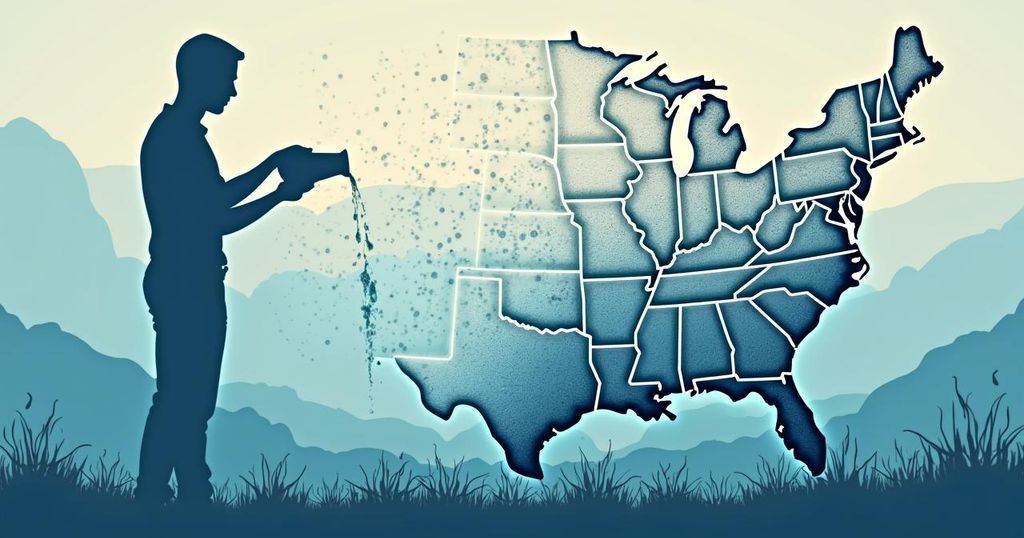Contaminated Water Crisis in Southeastern U.S. Following Hurricane Helene
Following Hurricane Helene, thousands in the Southeastern United States, particularly in states like North Carolina, Florida, Georgia, Tennessee, and Virginia, face challenges regarding contaminated water and power outages. Over 180 storm-related deaths have been reported, and many regions have issued boil water advisories due to health risks associated with floodwaters. Recovery efforts are underway and expected to last for months, necessitating long-term federal assistance after the extensive damage caused by this climate-related disaster.
In the aftermath of Hurricane Helene, residents across the Southeastern United States have begun to return to their homes, only to face significant challenges such as contaminated water and the threat of mold. The hurricane, which made landfall in Florida, has been linked to over 180 storm-related fatalities. As of now, thousands of individuals are still deprived of electricity and access to clean water, a week following the hurricane. Authorities note that in Western North Carolina alone, approximately 160 boil water advisories are currently in effect, while 27 water treatment facilities have ceased operations due to the storm’s impact. Asheville city officials have indicated that the nearly 100,000 residents might face a wait of several weeks before clean water becomes available again. Similar boil water and conservation warnings are in place in Florida, Georgia, Tennessee, and Virginia. Public health experts emphasize that ensuring access to clean water is one of the most pressing health concerns following a flood event. According to disaster epidemiologist Jennifer Horney, “Access to clean water is one of the most urgent health concerns after a flood. People need water for drinking, preparing food, cleaning, bathing, even flushing toilets. Contact with contaminated water can cause serious illnesses.” The risk from floodwaters, which may contain sewage and other harmful contaminants, poses significant health threats, particularly for vulnerable populations including those who are immunocompromised or suffering from wounds. Symptoms from infections caused by waterborne pathogens can manifest as gastrointestinal issues, fever, and headaches, as noted by Alasdair Cohen, an assistant professor at the Virginia-Maryland College of Veterinary Medicine. The extreme weather event, which has been attributed to climate change, has wreaked havoc across the Sunshine State and surrounding areas, leading to damages potentially exceeding $35 billion. Federal assistance is currently being mobilized to aid regions affected by the flooding, following visits from President Biden and Vice President Kamala Harris to impacted communities. Official reports anticipate that recovery efforts will extend for several months, with a pressing need for long-term support for flooded areas.
The discussion surrounding Hurricane Helene and its aftermath highlights the critical issues faced by communities in the Southeastern United States following severe weather events. With increasing instances of flooding tied to climate change, the health implications of accessing clean water post-disaster are becoming more pressing. As states contend with the ramifications of the hurricane, it is imperative to understand both the immediate and long-term needs of affected populations.
The effects of Hurricane Helene extend beyond immediate destruction, posing long-term health risks from contaminated water and mold exposure. With federal help on the way, the focus remains on restoring access to clean water and addressing the pressing health concerns that arise during recovery. Residents must prepare for a prolonged recovery process as they navigate the aftermath of this catastrophic event.
Original Source: www.axios.com




Post Comment